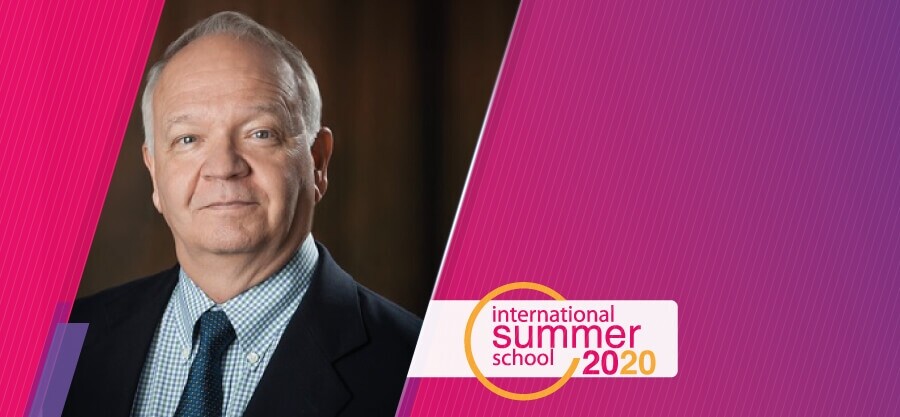

During the International Summer School’s second cycle, from June 23th to July 4th, visiting professors Dale Fodness from University of Dallas, Claude Chailan from EM Strasbourg and Jaime Sabal from ESADE, participated in the online program.
Our journalist interviewed Dale Fodness, who took some time out of his busy schedule to answer a few questions about why he decided to participate in UASM’s program, his work, his research interests, his thoughts about UASM, and his wealth of experience in online teaching.
- When and why did you decide to pursue an academic career?
I believe I did it because I had a number of friends who were faculty, and it always looked like they had a great lifestyle. They worked really hard and they worked on interesting things, and they had their summers free! Hey, that sounded wonderful! The reality of my own academic career though is that I have never had a summer free. But I have been able to do things like teaching in international summer schools. I have actually been teaching in Finland at Aalto University in their three-week programs for over 25 years. Last summer I taught the course that I am teaching in Uniandes now in Aarhus in Denmark.
- For you, what are the most satisfying aspects of being a scholar?
The most satisfying aspect is to be able to apply theory. I think that is the main thing. Someone once said that nothing is so useful as a good theory, and I see that on a regular basis because I am lucky enough to be a business professor and a marketing professor on top of that. So I get to see that these ideas actually work, and that they have impact, that they have influence. And it’s also very satisfying to work with good students because they always expand my knowledge base. I think that from a disciplinary point of view, what I like about the discipline of being a scholar and a practitioner at the same time, is that every day you are forced to do something that you don’t really think you can do or that you didn’t know that you could do. And I love that.
- How does your work contribute to the society as a whole?
I think that a really big contribution is to help people understand the people behind numbers. Think about COVID for example; we see a lot of charts and graphs out there and many of them are kind of misleading because in their everyday lives, people aren’t very good statisticians and that is as it is. But within business, which is my domain, I really have a responsibility to help people be data literate and understand what the data means and use it to impact other people positively. So I would say that to the extent that I can get people engaged or even passionate about a topic like sustainability and then be able to do a better job of going out and communicating what they believe is important to others. I think that’s an important impact and so if I were to teach the course in Uniandes again, I was just thinking that, I would love to teach it as data visualization in sustainability, because I know that Uniandes has sustainability as part of what it does in all its programs.
- What other research areas would you like to develop in the future?
Well, I am a marketer of course so I do the traditional sorts of things, but I also came from industry and in industry I worked in travel, tourism, and hospitality and originally when I was thinking about putting in a proposal to Uniandes, I thought about teaching one of my tourism classes. I have always been interested in why people travel, and my dissertation was on why people choose to go to one destination rather than another. Now I am very interested in sustainability and socially responsible tourism and sustainable tourism and so I do some writing in those areas. I am fascinated by complexity science and so I apply this to sustainable tourism and sustainability more broadly. And then on top of all of that, I have the idea of data visualization as a way to do visual analytics to help make the things that I typically research more accessible to a broader range of folks. I have always been not only an academic but a practitioner and I teach at a university that promotes that. So, yes, I am an academic but I am an active practitioner of analytics and marketing and work for a number of different companies as do all of the faculty here at my university. So it’s a great thing, because what I do, say in working for a tourism organization, in putting together a sustainability dashboard, I can then take back in and use as examples in my classes when I teach those topics.



































